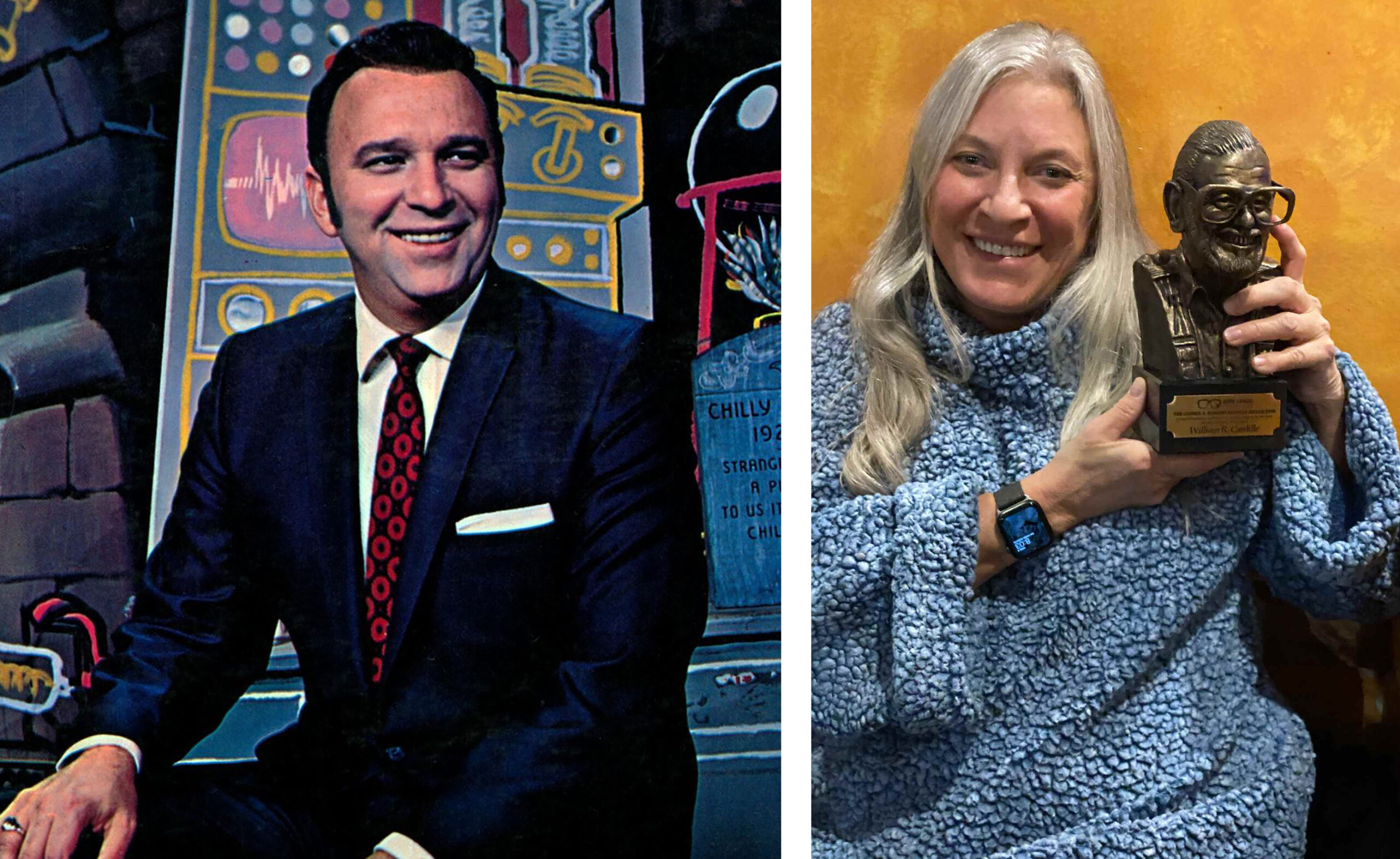back to GARF News
The William “Chilly Billy” Cardille Archive Donated to the University of Pittsburgh Library System
By Benjamin Rubin, ULS Horror Studies Collection Coordinator

The University of Pittsburgh Library System is proud to announce the acquisition of the William Cardille archive for its growing Horror Studies Collections within Archives & Special Collections. The collection not only traces Cardille’s radio and television career, it documents a slice of Pittsburgh’s media and broadcasting history. Donated by Cardille’s daughter, Lori Cardille, the collection contains photographs, news clippings, awards, and memorabilia spanning Cardille’s career as well as scripts from Chiller Theater when he played host as “Chilly Billy.”
Cardille was an icon of the Pittsburgh media landscape for almost 60 years, with generations of Pittsburghers recognizing both his face and voice. Born on September 28, 1928, Cardille lived most of his life in Western Pennsylvania, growing up in the Sharon area, attending IUP, and living and working in the Pittsburgh region. He died in his McCandless home on July 21, 2016.
Cardille started his broadcasting career in radio in Indiana, Pennsylvania., in 1951 before moving to Erie to get his start in television. He came to Pittsburgh in the mid 1950s and became a fixture of Pittsburgh television working for WPXI for almost 40 years. He was the first voice viewers heard when the channel went on the air on September 1, 1957 (then under the call letters WIIC). He served the station in a variety of capacities including as host of Studio Wrestling, the local host of the Jerry Lewis Muscular Dystrophy telethons (where he famously hosted for 24 hours straight on live TV), weatherman, and daytime anchor. He stayed with WPXI until his retirement in the early 1990s when he returned to radio until his death.
Cardille was perhaps most famous to Pittsburghers as Chilly Billy, the host of Chiller Theater. His show pioneered the concept of the horror host, paving the way for other hosts such as Joe Bob Briggs, Elvira, Svengoolie, and the crew from USA’s Up All Night. Chilly Billy was known for his wry sense of humor expressed through often campy, slapstick skits and interludes between segments of public domain horror films broadcast on the show. Chiller Theater aired from 1963 to 1984 and was so popular in Pittsburgh that it delayed the local broadcast of Saturday Night Live for four years before WPXI gave in to NBC demands and moved it until after SNL. Cardille was a friend and supporter of George A. Romero and had a small role in Night of the Living Dead. The film was a frequent feature on Chiller Theater and Romero himself appeared as a guest. The show also featured a number of nationally known guests such as Phyllis Diller, Jerry Lewis, Lorne Green, Vincent Price, and Bruno Sammartino.
On her decision to donate the materials to the ULS, Ms. Cardille says “The Cardille family is proud to share Chilly Billy’s pioneering career in early television as well as his huge influence on the horror genre. To know that his work will be studied and used for years to come is truly an honor, and a moving tribute for his family. We know that he would have been thrilled, more so than any statue or plaque could ever have provided. Bill Cardille was a creative and caring man who loved his family, his friends, his many fans, and ,of course, Pittsburgh. We can think of no finer resting place for his archives than the Horror Center at the University of Pittsburgh’s Hillman Library.”
Horror Studies Collection Coordinator Ben Rubin says, “The ULS is excited to add such an important piece of Pittsburgh media history to our collections. Cardille was at the forefront of the television age and helped define a new media landscape in Pittsburgh, becoming a beloved icon for many generations. As host of Chiller Theater, Chilly Billy brought horror to the masses and, alongside George Romero, made Pittsburgh a city of horror fans. Thus, it is fitting to know that their archives will live alongside one another in the ULS collections.”
SUBSCRIBE TO OUR NEWSLETTER.

The George A. Romero Foundation (The GARF) is a 501c(3) non-profit organization dedicated to honoring George’s life, art, and cultural impact by restoring and preserving his portfolio and legacy, and supporting the dreams and imaginations of independent filmmakers, artists, and writers inspired by George.
Copyright © 2024 George A. Romero Foundation